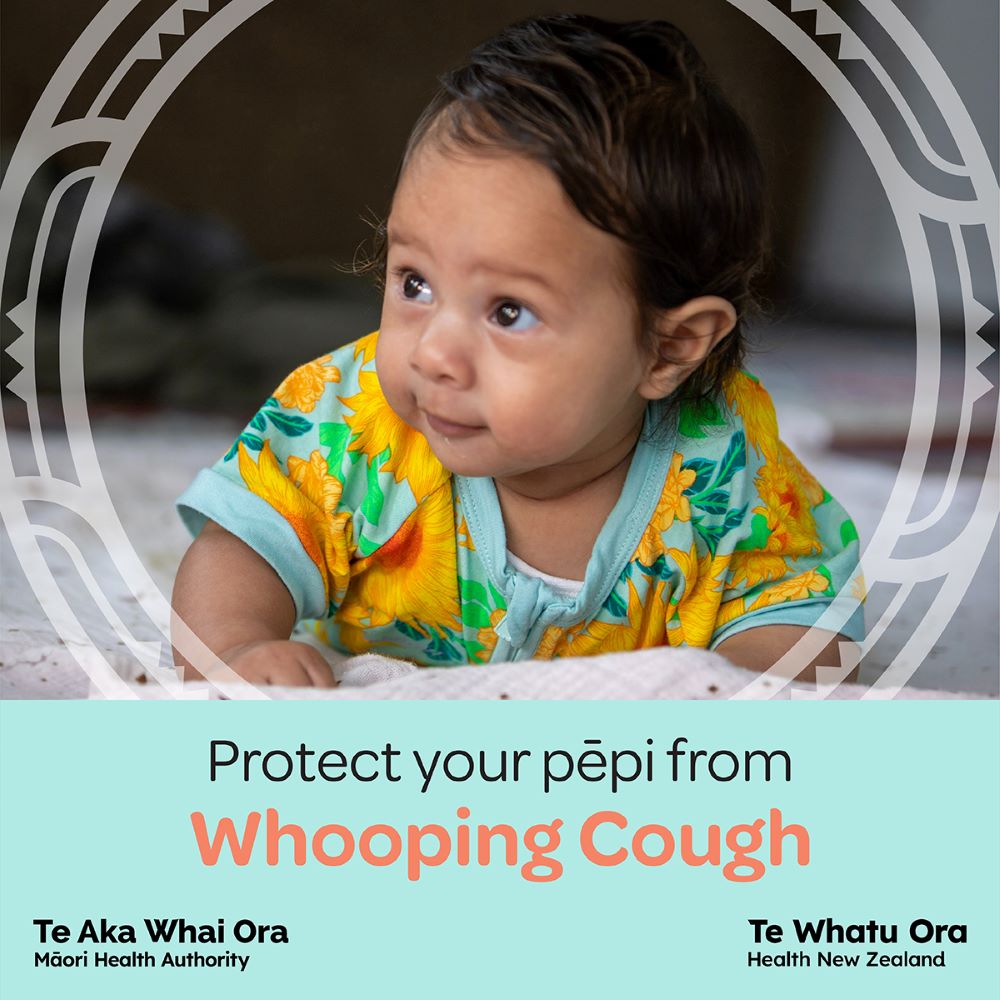Symptoms and illness
Whooping cough (pertussis) symptoms start with a runny nose and dry cough. Coughing gets worse over the next few weeks developing into attacks of coughing. The ‘whoop’ sound occurs as babies draw a breath after a long coughing attack. Children often gasp for air and some make a ‘whooping’ sound. They may also vomit after coughing attacks. Babies might go blue or stop breathing during coughing attacks. Most children are well between the coughing spells.
In older children and adults whooping cough may present as an unexplained persistent cough that goes on for more than two weeks. The cough may last for up to three months.
Severe risks associated with whooping cough
Whooping cough (pertussis) is most serious in those under one year old and babies under one year are most at risk of serious complications from the infection. Around seven out of ten babies who catch whooping cough when they are under six months old are hospitalised. Whooping cough can lead to pneumonia and can also lead to encephalopathy (brain damage), convulsions and death. The risk of encephalopathy ranges from about one in 100 to one in 1000.
Severe complications are much less common in older children and adults but infected teenagers and adults can pass the infection on to younger children and babies.
Treatment
You should see your family doctor if you think you have symptoms of whooping cough (pertussis). Your doctor can arrange tests and may prescribe antibiotics. Sometimes, as a preventative measure, antibiotics are also offered to the whole family if there are young children in the family at risk of severe disease and complications. Antibiotic treatment is useful in preventing the spread of infection and, if given early, may shorten the period you are unwell.
Prevention and stopping the spread of infection
-
Immunisation is the best prevention – it is especially important to ensure babies are immunised on time. Do not delay your baby's first immunisations which are given at 6 weeks, 3 months and 5 months. Ensure older children are also up to date with their immunisations. Immunisation for children is free. Find out how to book a whooping cough vaccination.
-
If your doctor has diagnosed you with whooping cough stay away from work, school or pre-school until you are advised it is safe. This is usually after a period of antibiotic treatment – or if not given antibiotics, until 3 weeks after the cough started. Where possible, avoid contact with babies, young children and women in the late stages of pregnancy (because of the possible risk to their newborn baby).
-
The disease is spread by coughing. Don’t cough on babies. Cover your cough.
Additional measures to help protect newborn babies
It is advisable for women who are planning a pregnancy to ensure they are up to date with their immunisations before becoming pregnant. Other measures that may help protect newborn babies include whooping cough immunisation boosters for:
- Pregnant women in the late stages of pregnancy which helps protect their newborn from birth until their first immunisation at 6 weeks old (All pregnant women can get a free whooping cough vaccine in the second and third trimester of their pregnancy from their GP and some pharmacies).
-
Parents or primary care givers of infants admitted to a Neonatal Intensive Care Unit for more than 3 days can get a free whooping cough immunisation from their GP.
- Family and household members who are likely to be in contact with the newborn (Note that there may be a cost associated with these vaccinations for adults).
Expectant mothers should discuss the above measures with their GP.
More information
Whooping cough (pertussis) vaccine - Health New Zealand | Te Whatu Ora
Whooping cough - Immunisation Advisory Centre (Contact on 0800 IMMUNE (466 863)
Whooping cough - KidsHealth







